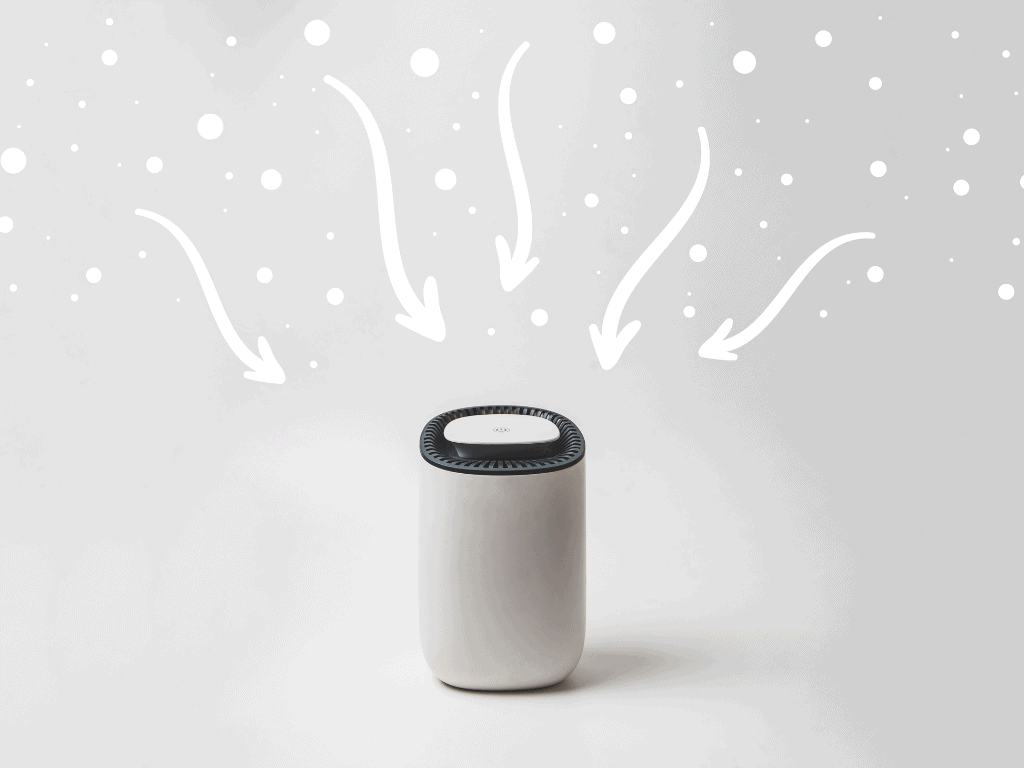Is Your Air Purifier Working Well?
Are you using your air purifier effectively? The demand for home air purifiers is rising nowadays because more and more people are worried about the air quality. We tend to inhale a lot of pollutants and dust particles because we spend most of our time inside our homes. Some of them can also trigger lung-related illnesses. Using an air purifier, then, makes sense. Tropika Club finds out in this article if those units really work. For more details please read on.
Table of Contents
No Time to Read? Here’s a Snappy Summary of This Article
- Air purifiers play a crucial role in maintaining clean indoor air quality. Air purifiers are essential devices that help eliminate pollutants and improve the quality of the air we breathe indoors.
- Understanding the different types of air filters can help you choose the most suitable one for your needs. There are various types of air filters, including HEPA filters, activated carbon filters, and ionizers, each targeting specific contaminants in the air.
- Regular maintenance and filter replacement are necessary to ensure optimal performance. Proper maintenance, such as cleaning and replacing filters according to manufacturer guidelines, is crucial to keep air purifiers functioning effectively.
- Measuring the Clean Air Delivery Rate (CADR) can help determine an air purifier’s efficiency. CADR is a standardized measurement that indicates the air purifier’s ability to remove specific pollutants, such as smoke, pollen, and dust, from the air.
- Positioning your air purifier strategically can enhance its performance. Placing the air purifier in a location with proper airflow, away from obstructions, can improve its efficiency in purifying the surrounding air.
- Understanding the limitations of air purifiers can help set realistic expectations. While air purifiers are beneficial in reducing indoor air pollution, they may not completely eliminate all contaminants and should be used in conjunction with other healthy practices.
How effective are they?
Bear in mind that these devices can not neutralise or eliminate from your home any kind of harmful particles. The explanation for this is that some of the particles are bound to soft surfaces such as carpets, bedding and furniture while some are stuck to the walls. We can say, then, that these devices can filter various types of particles. Some of them are referenced below:
Mould
Besides allergens, mould can also be hazardous to the lung conditions sufferers. Though to some extent these filters are efficient, filtration offers much more efficiency. So, it is a much better idea to use a HEPA filter.
What does HEPA mean and where did it come from?
HEPA, which stands for High Efficiency Particulate Air, is a designation used to describe filters that are able to trap 99.97 percent of particles that are 0.3 microns. Though the HEPA standard and certification process wasn’t established until 1983, development of HEPA filters dates back to World War II, when American scientists with the Manhattan Project created the first HEPA filter to capture radioactive particles released during the creation of the atomic bomb.
Why 0.3 microns?
That micron size (0.3) is referred to by scientists as the MPPS, or the most penetrating particle size. Scientists have found that particles of that size evade air filters more than larger or smaller particles. We’ll get into why in a little bit.
What are HEPA filters made from and how do they work?
Most modern HEPA filters consist of interlaced glass fibers that are twisted and turned in myriad directions to create a fibrous maze. As particles traverse this web, they’re taken out of circulation in the following ways:

Smoke
Air purification systems that come with filters can help eliminate airborne smoke. However, they can not remove all of the smoke from the ceilings or walls, such as the smoke stains. The truth is, most of the air purifiers you find are not intended to get rid of smoke or other gaseous pollutants. They can’t eliminate odours of smoke either. Instead, most air purifiers are designed to get rid of allergens, dust, and pet dander — not cigarette and cigar smoke — particles.

Read Also: The Total Skincare Routine Recommended by Dermatologists
Toxins found indoors
Your home can also be a source of toxins for indoors. We can come from cleaning and personal care items. Though these particles are airborne, they can harm your body. Although those units can do a decent job of capturing indoor contaminants, using them sparingly is the best way to get rid of them. Because the effects of exposure to toxins are difficult to identify, it may be years before exposure problems manifest themselves as a disease or chronic disease. In the US, many products for certain toxins have been screened by the EPA, but until the necessary revisions to the Toxic Substances Control Act have been adopted by Congress, many flaws in the system leave the burden of responsibility on consumers to make informed decisions by reading individual product MSDS (Material Safety Data Sheets), following recommendations from agencies such as Consumer Reports .

The bottom line
In short, air purifying units work great when used with the correct type of filter and cleaning techniques. Although these devices do not improve your indoor air quality, they can offer a lot of support. If you have an underlying disorder, such as allergies and asthma, we recommend you consult your doctor first.

Conclusion
Air purifiers are super important for keeping the air we breathe indoors clean and healthy. They help eliminate all sorts of pollutants and make sure the air is fresh. But how do you know if your air purifier is actually doing its job? Well, let me break it down for you.
First off, it’s good to know the different types of air filters out there. You’ve got HEPA filters, activated carbon filters, and ionizers, just to name a few. Each type targets specific contaminants in the air, so it’s important to choose the one that suits your needs best.
Maintenance is key when it comes to air purifiers. You need to make sure you clean and replace the filters regularly. This keeps your purifier working at its best and ensures that it’s actually doing its job. So don’t forget to follow the manufacturer’s guidelines for maintenance.
One way to measure the efficiency of your air purifier is through the Clean Air Delivery Rate (CADR). It’s a fancy term, but all it means is how well your purifier can remove certain pollutants from the air. The higher the CADR, the better the performance of your purifier.
Where you place your air purifier also matters. It’s important to position it in a spot with good airflow and away from any obstructions. This way, it can do its job more effectively and clean the air in the surrounding area.
Now, it’s important to note that air purifiers have their limitations. They can definitely reduce indoor air pollution, but they might not be able to eliminate all contaminants completely. So while they’re helpful, it’s also important to practice other healthy habits like proper ventilation and keeping your space clean.
In conclusion, air purifiers are an important tool in maintaining clean indoor air quality. Understanding the different types of filters, performing regular maintenance, measuring the CADR, and placing the purifier strategically are all key factors in ensuring its effectiveness. However, it’s essential to have realistic expectations and supplement air purifiers with other healthy practices. By considering these points, you can make sure your air purifier is working well and keeping the air in your home fresh and clean. Stay healthy and breathe easy!

Frequently Asked Questions (FAQ)
Q: How do I know if my air purifier is working effectively?
A: To determine if your air purifier is working well, there are a few indicators to look out for. Check if the air in your space feels cleaner and fresher, if any odors or allergens have been reduced, and if you experience improved respiratory health. Additionally, you can measure the Clean Air Delivery Rate (CADR) of your air purifier, which indicates its efficiency in removing specific pollutants from the air.
Q: How often should I clean or replace the filters in my air purifier?
A: The frequency of filter cleaning or replacement depends on the manufacturer’s guidelines and the specific model of your air purifier. In general, it is recommended to clean or replace the filters every three to six months for optimal performance. Regular maintenance ensures that the air purifier continues to effectively remove pollutants and maintain good air quality.
Q: Can air purifiers help with allergies and asthma?
A: Yes, air purifiers can be beneficial for individuals with allergies and asthma. They can effectively capture and remove allergens such as dust mites, pollen, pet dander, and mold spores from the air. However, it’s important to note that air purifiers are just one part of an overall allergy or asthma management plan, and consulting with a healthcare professional is advised for personalized guidance.
Q: Can air purifiers eliminate viruses and bacteria?
A: While air purifiers can help reduce the presence of viruses and bacteria in the air, they cannot guarantee complete elimination. Some air purifiers with advanced filtration systems, such as HEPA filters and UV-C technology, can capture or neutralize certain viruses and bacteria. However, it is important to follow recommended hygiene practices, such as frequent handwashing and surface disinfection, to minimize the spread of infections.
Q: Are there any specific features I should look for when buying an air purifier?
A: When purchasing an air purifier, consider the size and coverage area of the purifier to ensure it can effectively clean the air in your space. Look for models with HEPA filters, as they are highly efficient in capturing airborne particles. Other features to consider include noise levels, energy efficiency, and additional filtration technologies like activated carbon filters or ionizers, depending on your specific needs.
Q: Can air purifiers help with odors from cooking or smoking?
A: Yes, air purifiers can help reduce odors from cooking, smoking, or other sources. Models with activated carbon filters are particularly effective in capturing and neutralizing odors. However, it is important to note that air purifiers are not a substitute for proper ventilation and odor control measures. Adequate ventilation, such as opening windows or using exhaust fans, should also be practiced to remove odors effectively.
Meanwhile, Check Out Tropika Club’s Ecosystem of Websites

Tropika Club Magazine – Tropika Club Magazine is a Singapore-based publication that features articles on a wide range of topics with a focus on local businesses and content for the region. The magazine emphasizes supporting local businesses through its #SupportLocal initiative, which includes coverage of everything from neighborhood hawker stalls to aesthetic clinics in town. In addition to highlighting local businesses, Tropika Club Magazine also covers a variety of local content, including beauty, lifestyle, places, eats, and what’s on in Singapore and the Asia Pacific region.
Tropika Club Deals – Tropika Club Deals is a leading online deals and voucher shopping site in Singapore, offering amazing discounts on beauty, wellness, and fitness products and services. It’s the perfect platform for customers who want to discover the best deals without having to commit to a specific appointment date and time. These deals are available at major beauty stores, facial salons, hair salons, and other brands in Singapore, with no minimum spend required. Choose from guaranteed discounted deals in the categories of hairstyling, hair removal, facial & aesthetics, body slimming, brows & lashes, nails & makeup, massage & spa or fitness & wellness. Tropika Club Deals is also ideal for customers who want to buy vouchers as gifts or to use for the future. So whether you’re looking to save money on your next haircut or want to treat yourself to a relaxing massage, Tropika Club Deals has got you covered with the best voucher and coupon deals in Singapore!




